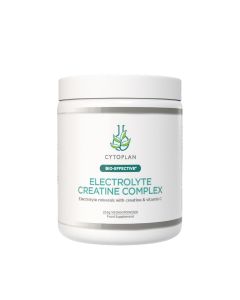Q: I'm really struggling with anxiety, what can I do to help?
A:
Anxiety can be a complicated issue with many factors influencing it, and these factors will be different for everyone. However, anxiety is commonly associated with an over activation of something referred to as the ‘hypothalamus-pituitary-adrenal (HPA) axis’. The HPA axis is involved in signalling from the brain to the adrenal glands, which sit on top of the kidneys and are responsible for the production and release of the stress hormones known as adrenaline and cortisol. It is the over secretion of these hormones that can create the physical feelings of anxiety. Adrenaline and cortisol are designed to be used in times of severe stress - to help us to be alert and energetic enough to rise to a challenge or potential threat. However, in modern times, the stress we often experience may be less severe but is much more constant, and this leads to chronic over activation of the HPA axis.
It is therefore important to help switch off the HPA axis activation by calming down the stress response. Relaxation techniques can really help with this and might include:
- Scheduling some time every day to practice meditation, mindfulness or deep breathing
- Activities such as yoga and Pilates
- Getting outside and spending time in nature
- Listening to music
- Having a massage
- Taking an epsom salt bath
It is also useful to consider the intake of nutrients which can help to support a normal stress response.
- Vitamin B5 (Pantothenic Acid) is used by the adrenal glands in high quantities during times of stress. It has also been shown to support mental performance and contribute to the reduction of tiredness and fatigue.
- Vitamin B12 depletion is often a consequence of chronic stress. B12 plays an essential role in supporting normal nervous system function.
- Vitamin C is quickly depleted by stress and is an important vitamin involved in adrenal metabolism.
- Magnesium is required to relax both body and mind and plays a major role in the normal functioning of the nervous system. It also helps to reduce feelings of tiredness and fatigue, and supports psychological function. It is often referred to as ‘nature’s tranquiliser’ and is also depleted during periods of stress.
- Zinc is the most abundant trace mineral in the brain and low levels are associated with various mental health issues. Supplementation of this important mineral has been shown to raise GABA levels. GABA is a neurotransmitter which helps us to feel calm.
- Omega 3 fatty acids are vital in supporting brain structure and function.
Dietary considerations can also be of benefit. It is important to stabilise blood sugar levels as significant peaks and dips in blood sugar triggers the HPA axis. Therefore, it is important to avoid refined sugar and processed carbohydrates, and include fibre from wholegrains and vegetables alongside lean protein and healthy fat. This slows down the release of sugar into the blood stream and prevents a sharp dip in blood sugar levels which would otherwise trigger the stress response.
Last but by no means least, it is really important to try to address the underlying causes and types of stress that may be triggering your anxiety in the first place.









